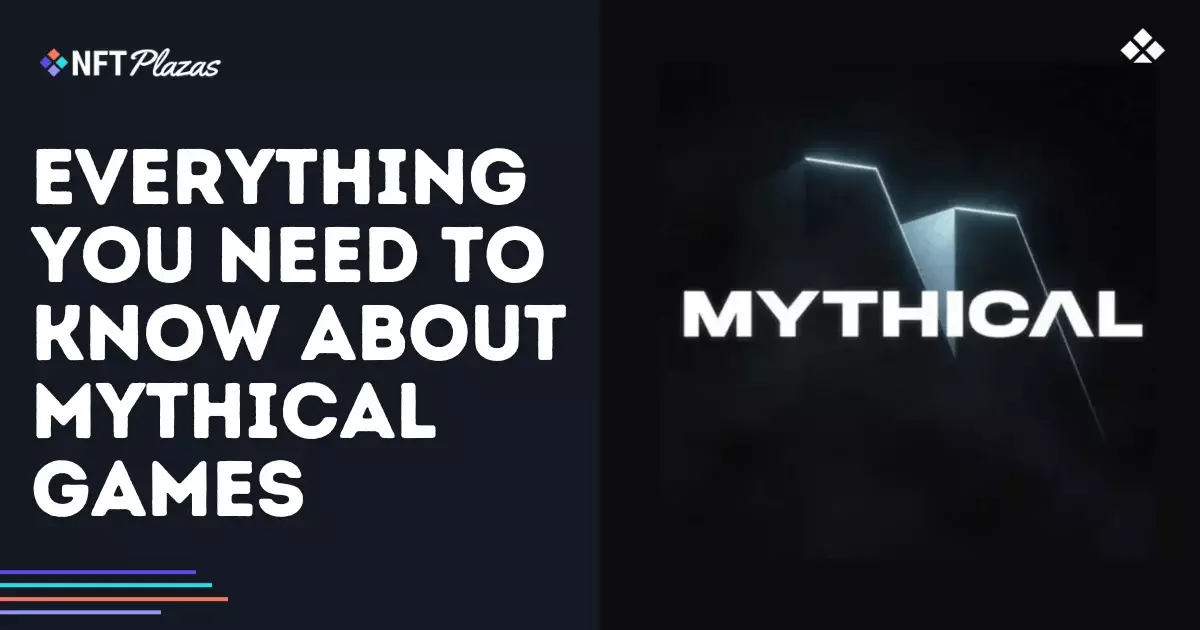The allure of integrating blockchain technology into gaming promised a future where players would become true owners of their in-game assets. Mythical Games emerged as a prominent pioneer, fueled by an optimistic belief that decentralized ownership could revolutionize the industry. Initially, the narrative was compelling: players could collect, trade, and monetize items with unprecedented freedom, bridging the gap between gaming and finance. However, beneath this visionary facade lay a landscape riddled with challenges, skepticism, and inherent contradictions.
Despite significant investments, Mythical’s progress has been marred by the difficulties associated with practical implementation. The core assumption—that blockchain would seamlessly integrate into gaming without disrupting player experience—has repeatedly faced the harsh reality of technical complexity, user friction, and market volatility. These obstacles expose a fundamental flaw in early web3 gaming ambitions: the technology remains too cumbersome and inaccessible for mass adoption, despite efforts to abstract blockchain mechanics behind user-friendly platforms. Mythical’s solution to simplify onboarding, making blockchain transactions invisible to players, is a commendable step but arguably insufficient to overcome entrenched skepticism, especially when the core gameplay still struggles to retain players’ interest beyond novelty.
The broader crypto market downturn further complicated their trajectory. While Mythical managed to secure impressive funding rounds—by some estimates over $200 million—such capital inflows failed to translate into sustained growth or industry-wide acceptance. The risk was externalized in layoffs and the shuttering of key projects, illustrating that even the most well-funded ventures cannot escape the volatile nature of the underlying crypto economy. The core question remains: does blockchain gaming hold sustainable appeal, or is it merely a phase driven by hype and speculative fervor?
Strategic Shifts: From Vision to Survival
Mythical’s strategic endeavors reflect a persistent tension between ambitious innovation and pragmatic survival. The company’s initial focus on blockbuster partnerships and high-profile games like Blankos and NFL Rivals aimed to validate blockchain’s place in mainstream gaming. Featuring collaborations with brands such as Burberry and Deadmau5, Mythical attempted to elevate the perception of blockchain assets from mere collectibles to cultural commodities. Yet, these efforts often failed to translate into long-term engagement, as most gaming communities proved resistant to the idea of virtual assets being solely driven by blockchain.
The move to shift focus from PC to mobile gaming in late 2023 exemplifies a necessary acknowledgment of reality. Mobile platforms offer wider accessibility, better monetization potential, and lower friction. But in doing so, Mythical highlights an uncomfortable truth: web3’s current appeal is contingent on novelty rather than genuine gameplay innovation. The shutdown of the PC version of Blankos, after its initial excitement waned, encapsulates a sobering lesson that blockchain gameplay alone cannot sustain prolonged interest. Instead, it is the quality of the game design—combined with seamless ownership features—that determines longevity, a standard Mythical has yet to fully meet.
The company’s push into sports games like NFL Rivals displayed their intent to embed blockchain into established successful franchises. While the results—impressive download figures and active player bases—seem promising at first glance, they also underscore a broader concern: performance metrics on mobile do not necessarily equate to meaningful industry shift. They are indicative of a player base that appreciates innovation but may not support the broader infrastructural changes that true blockchain integration demands.
Internal Struggles and Market Realities
Behind Mythical’s glossy public image lie internal tensions and pragmatic recalibrations. The departure of key executives and subsequent lawsuits reveal the fragile human dynamics underpinning their rapid rise. While some may view these disputes as setbacks, they also underscore the undue pressure placed on early-stage blockchain gaming companies to deliver without the proper structural foundations.
Furthermore, the crypto downturn hit Mythical hard. The layoffs and project cutbacks reflect how fragile early web3 experiments remain in an ecosystem still dominated by volatility and speculation. Despite raising hundreds of millions, the company’s attempts to foster a mature ecosystem have been hamstrung by persistent skepticism from gamers, regulators, and mainstream corporations alike. The regulatory uncertainties hanging over the industry could prove to be the most significant threat, as governments tighten rules surrounding digital assets and NFTs.
Yet, Mythical’s pivot to streamline blockchain use within familiar gaming contexts indicates a nuanced understanding: integration must be less about hype and more about utility. Their ongoing collaborations—adding blockchain elements to racing series and upcoming titles—show a willingness to test whether blockchain can enhance, rather than complicate, gaming experiences. But whether these efforts restore faith or merely serve as marketing ploys remains to be seen.
Cryptocurrency Hype versus Practical Gaming
Mythical’s journey embodies the inherent clash between visionary claims and industry realities. Blockchain’s promise of true ownership and decentralized economies sounds revolutionary but remains largely unproven outside niche communities. The company’s emphasis on branding, partnerships, and expanding into diverse genres underscores the desire to normalize blockchain beyond the crypto faithful. Still, the core issues persist: technology adoption is slow, player engagement remains fragile, and market volatility continues to undermine confidence.
While Mythical attempts to craft an ecosystem that appeals both to crypto enthusiasts and mainstream gamers, the persistent question is whether this hybrid approach is sustainable or just delaying the inevitable reckoning. The company’s experiences reveal that, for the time being, mainstream acceptance hinges less on blockchain’s technical prowess and more on creating genuinely captivating gameplay that naturally incorporates ownership features—passive features that don’t require players to understand or care about underlying technology.
Ultimately, Mythical’s story reflects a larger industry struggle: the challenge of translating an innovative but nascent technology into a cohesive, engaging gaming experience. Their efforts exemplify the ongoing tension between appealing to early adopters eager for novelty and convincing mainstream audiences that blockchain is a meaningful enhancement rather than an unnecessary complication. Whether Mystic will eventually transcend its current teething pains to pioneer enduring change remains uncertain, but its journey no doubt underscores the complexities and perils of forging a new frontier in gaming.

